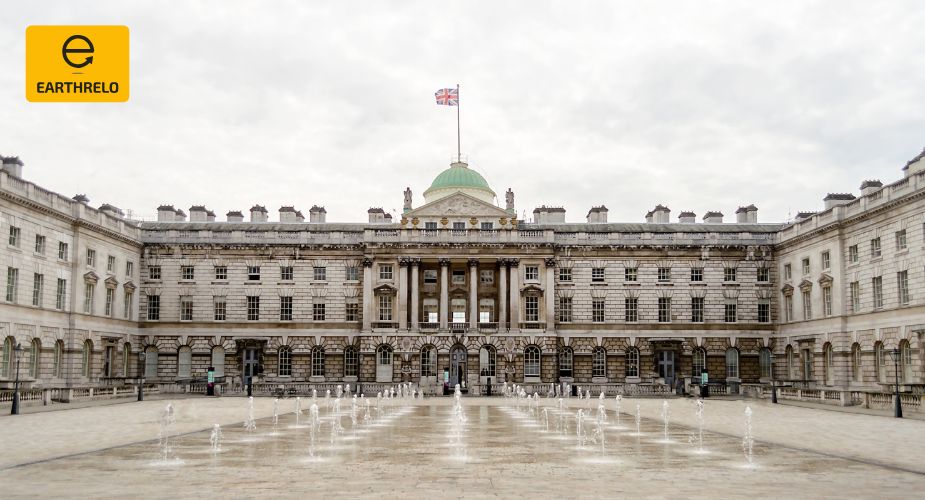- July 23, 2024
Canada is a popular destination for people looking to relocate due to its high quality of life, diverse culture, and beautiful landscapes. However, understanding the cost of living in Canada is essential for anyone planning to move. The cost of living in Canada varies significantly depending on the city and lifestyle choices. By planning and budgeting effectively, you can ensure a smooth transition. Earthrelo is here to assist you with professional moving services, ensuring that your move to Canada is as stress-free as possible.
Cost of Living in Canada – Housing
Housing is one of the most significant expenses when considering the cost of living in Canada. Whether you choose to rent or buy, the costs can vary widely depending on the location, size, and amenities of the property.
Types of Housing Options: Renting vs. Buying
Renting is a popular option, especially for newcomers. The average rent for a one-bedroom apartment in a city center like Toronto or Vancouver can range from CAD 1,500 to CAD 2,500 per month. On the other hand, smaller cities and towns offer more affordable options, with rents often below CAD 1,000 per month.
Buying a home is a substantial investment and can be more cost-effective in the long run. The cost of purchasing a home in Canada varies dramatically across regions. In cities like Toronto and Vancouver, the average price of a detached house can exceed CAD 1 million. In contrast, smaller cities and rural areas may offer homes for under CAD 300,000. When buying a home, consider factors such as mortgage rates, property taxes, and maintenance costs.
Additional Housing Expenses
In addition to rent or mortgage payments, there are several other housing-related expenses to consider:
- Utilities: This includes electricity, heating, water, and garbage collection. On average, utilities for a standard apartment can cost around CAD 150 to CAD 200 per month.
- Insurance: Home or renter’s insurance is crucial for protecting your property and belongings. The cost typically ranges from CAD 20 to CAD 50 per month, depending on coverage and location.
- Maintenance and Repairs: Homeowners should budget for regular maintenance and unexpected repairs. This can vary but generally costs around CAD 1,000 to CAD 2,000 annually.
- Property Taxes and Condo Fees: Homeowners need to account for annual property taxes, which can be around 1% of the property’s value, and condo fees for those living in condominiums, which cover building maintenance and amenities.
Understanding these housing costs is crucial for accurately assessing the cost of living in Canada. Earthrelo can provide valuable assistance in finding the right housing options and managing your move efficiently, ensuring you are well-prepared for your new life in Canada.
Cost of Living in Canada – Transportation
Transportation is a significant aspect of the cost of living in Canada, with various options available depending on your lifestyle and location. Whether you prefer owning a car or using public transportation, understanding these expenses is crucial for budgeting effectively.
Owning a Car
Owning a car offers convenience but comes with several costs. The initial purchase price of a new car can range from CAD 20,000 to CAD 40,000, depending on the make and model. Financing options can make this purchase more manageable, but it’s essential to consider the ongoing costs:
- Fuel: The cost of gasoline in Canada varies by province but generally ranges from CAD 1.20 to CAD 1.50 per liter. Monthly fuel expenses can add up, especially for long commutes.
- Maintenance: Regular maintenance, including oil changes, tire rotations, and unexpected repairs, can cost around CAD 1,000 to CAD 2,000 annually.
- Insurance: Car insurance is mandatory in Canada, with premiums depending on factors such as age, driving history, and location. On average, Canadians pay between CAD 1,000 and CAD 2,000 per year.
- Registration and Taxes: Annual registration fees vary by province but generally cost around CAD 100 to CAD 150.
Public Transportation
Public transportation is a cost-effective alternative to owning a car, particularly in major cities with well-developed transit systems. The cost of living in Canada can be more manageable by utilizing public transit, which includes buses, trains, and subways.
- Monthly Passes: Most major cities offer monthly transit passes, providing unlimited travel within the city. Prices range from CAD 90 to CAD 150, making it a budget-friendly option for daily commuters.
- Single Rides and Tickets: For occasional use, single ride tickets and day passes are available, costing between CAD 3 to CAD 10 depending on the city and type of service.
- Benefits: Public transportation helps reduce the cost of living in Canada by eliminating expenses associated with car ownership, such as maintenance, insurance, and fuel.
By comparing the costs of owning a car versus using public transportation, you can make an informed decision that suits your lifestyle and budget. Earthrelo can assist with the logistics of moving your vehicle to Canada or help you navigate the local public transit options to ease your transition.
Food and Grocery Costs
Food and grocery expenses are another essential component of the cost of living in Canada. Whether you prefer cooking at home or dining out, understanding these costs can help you manage your budget effectively.
Grocery Shopping
The cost of groceries in Canada can vary based on dietary preferences, family size, and shopping habits. On average, a single person might spend around CAD 200 to CAD 300 per month on groceries, while a family of four might spend between CAD 800 and CAD 1,200.
- Basic Staples: Common grocery items such as bread, milk, and eggs are reasonably priced, with a loaf of bread costing around CAD 2.50, a liter of milk about CAD 2, and a dozen eggs approximately CAD 3.
- Fresh Produce: Fruits and vegetables can be more expensive, with prices fluctuating based on season and availability. Shopping at local farmers’ markets can sometimes offer fresher and cheaper options.
- Savings Tips: To reduce grocery expenses and manage the cost of living in Canada, consider buying in bulk, using coupons, and taking advantage of sales. Planning meals and creating shopping lists can also help avoid impulse purchases.
Dining Out
Dining out can be a delightful but costly aspect of the cost of living in Canada. Restaurant prices vary widely depending on the type of establishment and location.
- Casual Dining: A meal at a mid-range restaurant might cost between CAD 15 and CAD 30 per person. Fast food options are cheaper, averaging CAD 10 to CAD 15 per meal.
- Fine Dining: For a more luxurious dining experience, expect to pay upwards of CAD 50 per person, excluding drinks and tips.
- Comparison with Home Cooking: Cooking at home is generally more economical than dining out. Preparing meals at home allows for better control over ingredients and portion sizes, ultimately helping to manage the overall cost of living in Canada.
Understanding the costs associated with both grocery shopping and dining out can help you balance your budget and make informed decisions. Earthrelo can provide tips and resources to help you find the best local markets and restaurants in your new Canadian city, ensuring you enjoy the culinary delights without overspending.
Other Living Expenses
When considering the cost of living in Canada, it’s essential to account for various other expenses that can impact your overall budget. These additional costs can vary depending on lifestyle choices and individual needs.
Clothing and Seasonal Needs
Canada experiences diverse weather conditions, with cold winters and warm summers. As a result, clothing expenses can be a significant part of the cost of living in Canada.
- Seasonal Clothing: Winter clothing, such as coats, boots, and thermal wear, can be costly. A good quality winter coat can range from CAD 100 to CAD 300, while winter boots can cost between CAD 50 and CAD 200. Summer clothing is generally less expensive but still an essential part of the budget.
- Budgeting Tips: To manage clothing expenses, consider shopping during sales, purchasing off-season, and exploring second-hand stores. Quality items may have a higher upfront cost but can be more durable and provide better value over time.
Telecommunications
Staying connected is crucial, and telecommunications expenses are a significant part of the cost of living in Canada.
- Phone Plans: Monthly mobile phone plans can range from CAD 30 to CAD 100, depending on data usage, talk time, and additional features. Family plans may offer cost savings for multiple users.
- Internet Services: High-speed internet is widely available, with monthly costs typically ranging from CAD 50 to CAD 100. Bundled services, including phone and TV, may offer better value.
- Savings Tips: Compare plans from different providers to find the best deal. Consider bundling services for discounts, and always review your plan to ensure it meets your needs without unnecessary costs.
Wrapping Up
Understanding the cost of living in Canada is vital for effective financial planning and a smooth transition. By considering housing, transportation, food, and additional expenses, you can create a realistic budget that aligns with your lifestyle. Earthrelo is dedicated to assisting you with all aspects of your move, ensuring a seamless and stress-free experience. With proper planning and support, you can enjoy the benefits of living in Canada without unexpected financial burdens.





